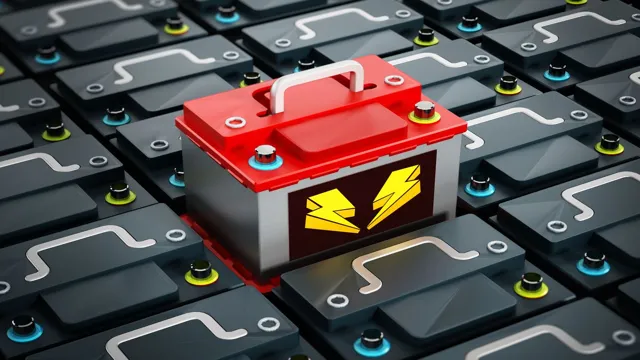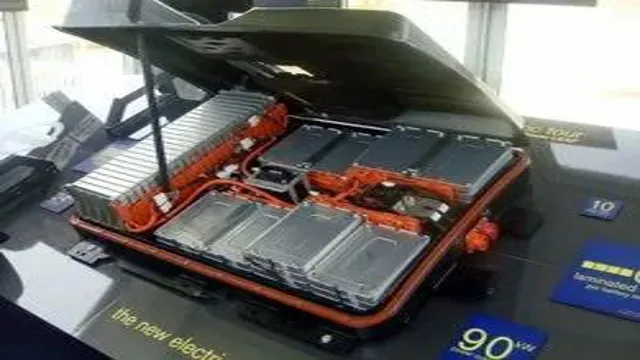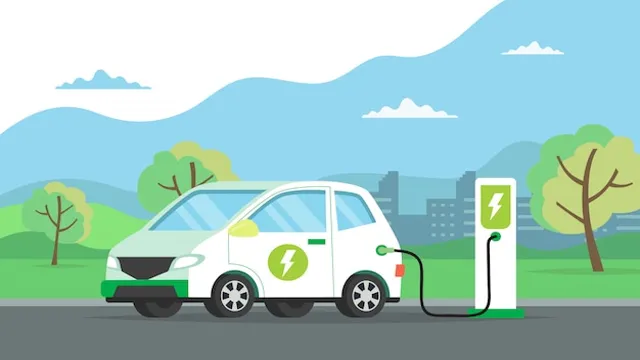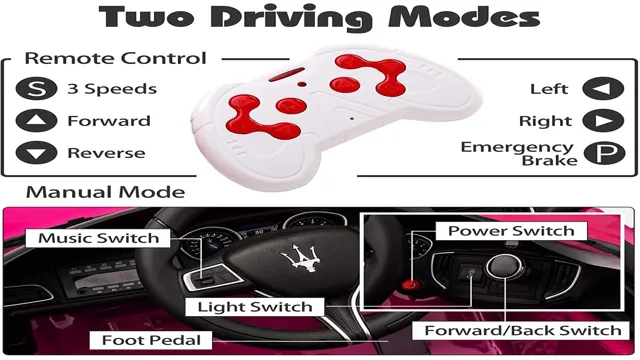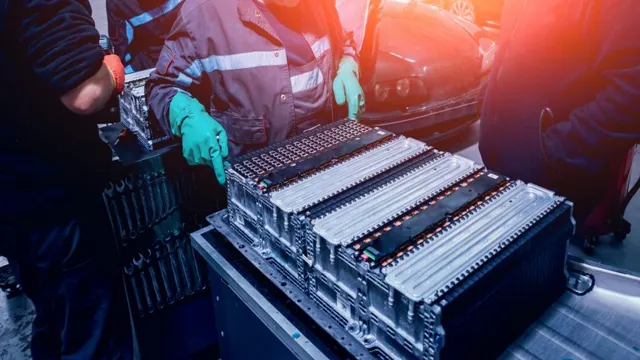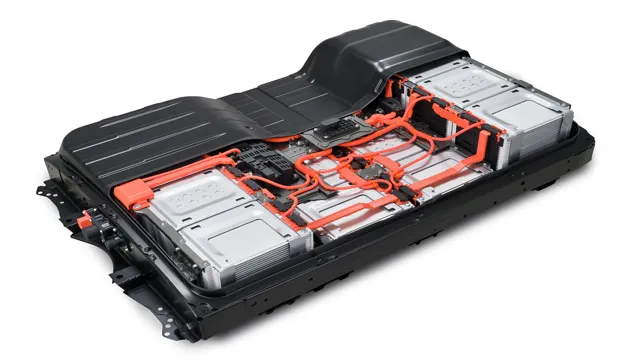Powering Up: Exploring the Various Types of Batteries for Electric Cars
Electric cars have become increasingly popular in recent years as people strive to reduce their carbon footprint and reliance on fossil fuels. However, one crucial aspect that often gets overlooked is the battery that powers these electric motors. The type of battery used in an electric car can affect its performance, range, and overall cost.
As such, it’s essential to understand the various types of batteries available for electric cars. In this blog, we’ll take a closer look at the different battery options on the market, including their pros and cons, to help you make an informed decision when buying an electric car. So buckle up and get ready to dive into the world of electric car batteries!
Lead-Acid Batteries
When it comes to different types of batteries for electric cars, lead-acid batteries are one option. These batteries are commonly used in internal combustion engine vehicles as well as golf carts and boats. They are relatively inexpensive compared to other battery types, but they have limited energy density, meaning they need to be recharged frequently.
Additionally, they are heavy and can take up a lot of space in a car, potentially reducing the available cargo room. However, lead-acid batteries are still a popular choice for some electric car models, particularly those that prioritize affordability over range and performance. So if you’re shopping for an electric car and looking for a budget-friendly option, lead-acid batteries might be worth considering.
Affordable and Widely Available
If you’re in the market for an affordable and widely available battery option, look no further than lead-acid batteries. These batteries have been around for decades and are commonly used in a variety of applications, including cars, boats, and backup power systems. One of the main advantages of lead-acid batteries is their low cost and availability.
Compared to other battery types, they are easy to find and relatively cheap. Additionally, lead-acid batteries are durable and can provide consistent performance over a long lifespan. While they may not be as efficient as other battery technologies, they are still a great option for those looking for an affordable and reliable power source.
So, if you’re in need of a dependable and cost-effective battery, consider going with a lead-acid option.
But Heavy and Limited in Capacity
When it comes to batteries, lead-acid batteries are one of the oldest and most commonly used types. These batteries are known for their reliability, durability, and affordability. They are widely used in cars, trucks, boats, and other vehicles, as well as in backup power systems.
However, despite their popularity, lead-acid batteries have some significant drawbacks. One of the most significant limitations of these batteries is their weight and size. Lead-acid batteries are heavy and bulky, which makes them impractical for use in portable electronic devices like smartphones and laptops.
Additionally, these batteries have limited capacity, which means they can only store a small amount of energy and must be recharged frequently. Despite these limitations, lead-acid batteries remain an essential component in many types of equipment, and they continue to be widely used due to their cost-effectiveness and reliability.
Lithium-Ion Batteries
When it comes to electric cars, one of the most important components is the battery. There are different types of batteries used in electric cars, but one of the most popular options is the lithium-ion battery. Lithium-ion batteries are known for their high energy density, which means they can store a lot of energy in a small space.
This makes them ideal for use in electric cars, which need to have a lot of power in a relatively small package. Lithium-ion batteries are also known for their long lifespan, which can be up to ten years or more. Another advantage of lithium-ion batteries is that they are relatively lightweight, which can help improve the range of an electric car.
Overall, lithium-ion batteries are a great choice for electric cars and are likely to remain so for the foreseeable future.
High Energy Density
Lithium-ion batteries are a popular choice for energy storage due to their high energy density and long cycle life. The high energy density of these batteries means they can store a significant amount of energy in a small package, making them ideal for use in portable devices like smartphones and laptops. Lithium-ion batteries are also used in electric vehicles because of their ability to store large amounts of energy in a small space, allowing for longer driving ranges.
Another advantage of lithium-ion batteries is their long cycle life, which means they can be charged and discharged many times without losing capacity. This makes them a cost-effective option for energy storage. Despite their advantages, lithium-ion batteries are not without their drawbacks.
They can be expensive to produce and are prone to thermal runaway, which can lead to fire or explosion if not properly maintained. Overall, however, lithium-ion batteries are a reliable and efficient choice for energy storage, and their popularity is only expected to increase in the coming years as technology continues to improve.
Lightweight and Durable
When it comes to rechargeable batteries, lithium-ion technology has become the go-to option, offering a lightweight and durable power source for a variety of applications. These batteries are commonly used in electronic devices such as smartphones and laptops, as well as in electric vehicles and even some aircraft. One of the key advantages of lithium-ion batteries is their low weight, which makes them ideal for portable devices that need to be carried around.
Additionally, they are incredibly durable, able to withstand thousands of charge and discharge cycles without losing significant capacity. This makes them a cost-effective option in the long run because they don’t need to be replaced as often as other types of batteries. Overall, lithium-ion batteries offer a reliable and efficient power source for a range of different devices, and their lightweight and durable construction make them an ideal choice for many different applications.
Expensive but Getting Cheaper
Lithium-Ion batteries are expensive, but their price is gradually decreasing. Initially, only small electronic gadgets like phones and laptops used these batteries, but now they are powering electric cars and even homes. The high cost is because of the raw materials, manufacturing process, and advanced technology required to produce these batteries.
However, as the demand for electric vehicles increases, the production volume of lithium-ion batteries is also increasing, making them cheaper. Additionally, advancements in technology are being made to reduce the cost of production. Of course, there is still much work to be done in making these batteries more affordable, but their growing demand and decreasing costs are a promising sign of things to come.
Solid-State Batteries
Electric cars have rapidly grown in popularity in recent years, bringing along the need for different types of batteries. One of the most promising options is the solid-state battery, which could overcome many limitations faced by traditional lithium-ion batteries. Unlike liquid electrolytes used in Li-ion batteries, solid-state electrolytes are much safer, less prone to overheating, and have a higher energy density.
They also eliminate the need for an anode, which can lower the weight and size of the batteries, ultimately leading to a longer driving range. Solid-state batteries have not yet reached mass production, but research and development are progressing rapidly, and some car manufacturers will start using them by the end of the decade. It’s exciting to see how the adoption of solid-state batteries would shape the future of electric cars, as they hold the potential to make them more efficient, safer, and affordable.
Improved Performance and Safety
Solid-state batteries are a promising technology that could revolutionize the way we power our devices. Unlike traditional lithium-ion batteries, which use liquid electrolytes, solid-state batteries use solid electrolytes that are much safer and more stable. This improves both the performance and safety of the batteries, since there’s no risk of leaks or explosions.
Solid-state batteries can also hold more energy than traditional batteries, meaning they can last longer and provide more power. They’re also more efficient, since they allow for faster charging times and can hold a charge for longer periods of time. This makes them ideal for use in electric vehicles, which need batteries that can provide a lot of power without weighing the vehicle down too much.
With continued development and research, solid-state batteries could become a common technology in the near future, powering everything from smartphones to cars.
Longer Lifespan and Faster Charging
Solid-state batteries are an exciting new technology that has the potential to revolutionize the way we power our devices. These batteries use a solid electrolyte instead of the traditional liquid electrolyte found in most batteries today. The result is a longer lifespan, faster charging times, and increased safety.
Unlike liquid electrolytes, solid electrolytes are not flammable, making solid-state batteries much safer to use. In addition, solid-state batteries are more energy-dense, meaning they can hold more energy in a smaller space. This is especially useful for electric cars, which require large, heavy batteries to power their engines.
Solid-state batteries could also be used to power drones and other devices that require a lot of energy in a small package. Overall, solid-state batteries are an exciting new technology that could change the way we live our lives.
Nickel-Metal Hydride Batteries
When it comes to electric cars, there are a variety of batteries to choose from. One option is Nickel-Metal Hydride batteries, or NiMH for short. These batteries are similar to traditional nickel-cadmium batteries, but have a higher energy density and are more environmentally friendly.
NiMH batteries are less prone to creating the memory effect, which reduces the overall capacity of the battery over time. They also have a longer lifespan than other battery types, making them a popular choice among electric car manufacturers. However, NiMH batteries are less efficient and have a lower energy density compared to other battery types, such as Lithium-ion batteries.
It’s important to consider the specific needs and requirements of an electric car when deciding on the best battery type to use.
Good Balance of Affordability and Performance
When it comes to finding a good balance between affordability and performance in batteries, nickel-metal hydride (NiMH) batteries are a great option. These cells pack a powerful punch while still being relatively inexpensive. They are a common choice for devices that require high energy output, such as cameras and remote controls.
One of the key benefits of NiMH batteries is their high capacity. This means they can store a lot of energy, allowing devices to run for longer periods without needing a recharge. Additionally, they have a higher energy output rate compared to other battery types, which makes them especially useful in high-drain applications.
Another great feature of NiMH batteries is that they are rechargeable. This means that they can be used multiple times, which is not only more environmentally friendly but also more cost-effective in the long run. NiMH batteries also have a lower self-discharge rate, meaning they can hold onto their charge for longer periods when not in use.
Overall, if you’re looking for a battery that offers a good balance of affordability and performance, NiMH batteries are definitely worth considering. They offer high energy output, fast recharge times, and more charging cycles than other battery types. Plus, with their affordable price point, they won’t break the bank.
Conclusion
In conclusion, just like a car needs different types of fuel to run efficiently, so does an electric car require diverse types of batteries to provide it with the power it needs. From Lithium-Ion to Nickel-Metal Hydride, each battery offers distinct advantages and disadvantages, making it a matter of personal preference and practicality. Ultimately, the choice of battery will depend on several factors, such as cost, range, performance, and environmental impact.
With advancements in technology, we can hope to see even more innovative and sustainable battery solutions for electric cars, making the switch to electric a more viable and exciting option for all of us.”
FAQs
What are the different types of batteries used in electric cars?
There are several types of batteries used in electric cars, including lithium-ion, nickel-metal hydride, and lead-acid.
Which type of battery is most commonly used in electric cars?
Lithium-ion batteries are the most commonly used type of battery in electric cars due to their high energy density, long lifespan, and fast charging capabilities.
Are there any disadvantages to using lead-acid batteries in electric cars?
Lead-acid batteries are heavier and have a lower energy density than other types of batteries, making them less efficient and more cumbersome to use in electric cars.
How do nickel-metal hydride batteries compare to lithium-ion batteries in electric cars?
While nickel-metal hydride batteries are less commonly used in electric cars, they offer lower cost and longer lifespan than lithium-ion batteries, although they have a lower energy density and slower charging capabilities.
